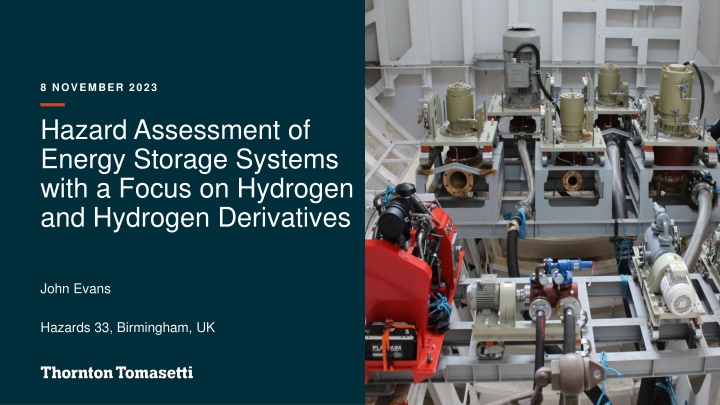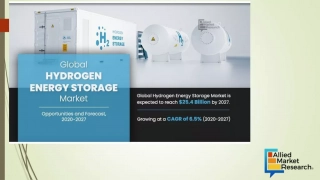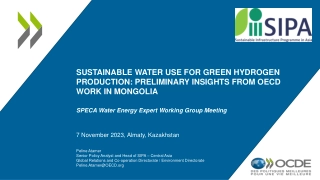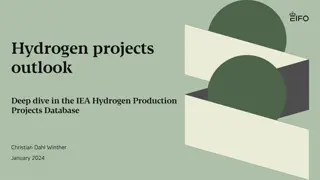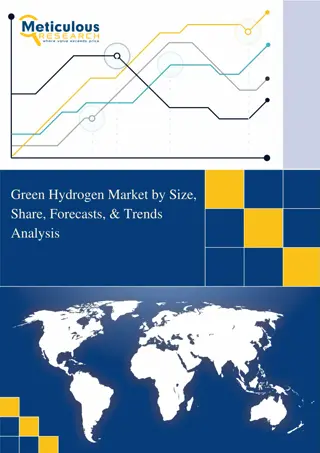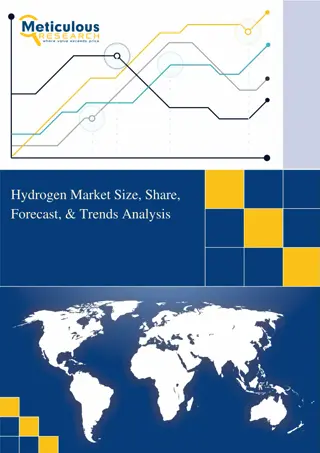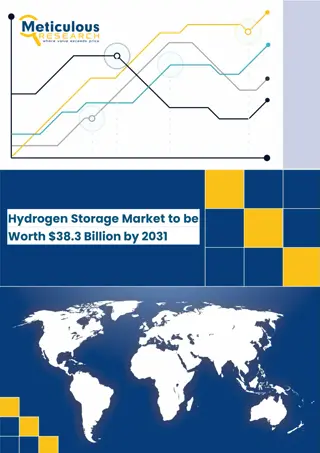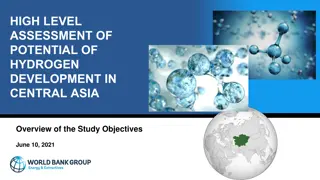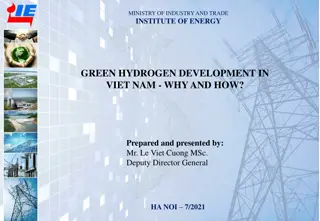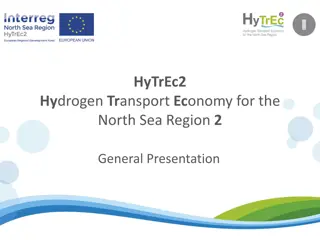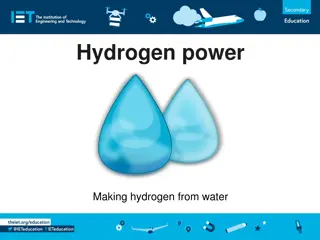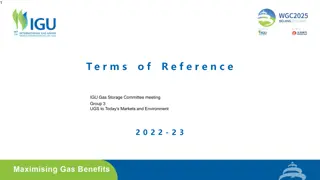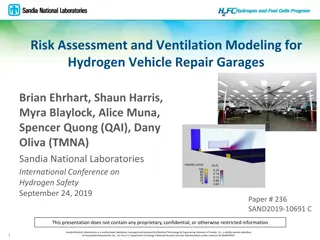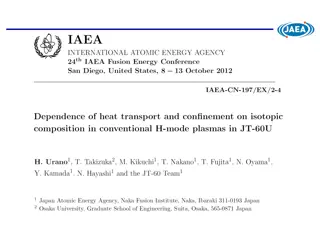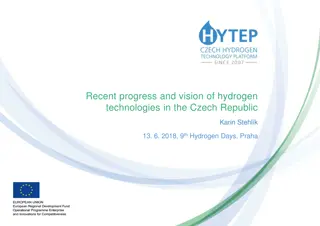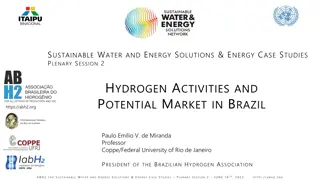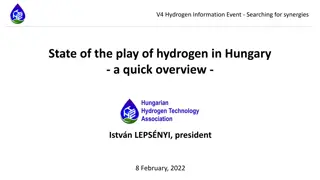Hazard Assessment of Energy Storage Systems with Focus on Hydrogen
This research delves into the hazard assessment of energy storage systems, with a critical focus on hydrogen and its derivatives. The study addresses the potential risks associated with various storage technologies and their implications. It also explores the importance of decarbonization and the role of renewable energy sources in mitigating climate change through efficient storage solutions. Additionally, it investigates major accident hazards that could arise from energy storage systems, emphasizing the need for stringent safety measures in the implementation of such technologies.
Download Presentation

Please find below an Image/Link to download the presentation.
The content on the website is provided AS IS for your information and personal use only. It may not be sold, licensed, or shared on other websites without obtaining consent from the author.If you encounter any issues during the download, it is possible that the publisher has removed the file from their server.
You are allowed to download the files provided on this website for personal or commercial use, subject to the condition that they are used lawfully. All files are the property of their respective owners.
The content on the website is provided AS IS for your information and personal use only. It may not be sold, licensed, or shared on other websites without obtaining consent from the author.
E N D
Presentation Transcript
8 NOVEMBER 2023 Hazard Assessment of Energy Storage Systems with a Focus on Hydrogen and Hydrogen Derivatives John Evans Hazards 33, Birmingham, UK
INTRODUCTION Decarbonisation = to stop or reduce carbon gases, especially carbon dioxide, being released into the atmosphere as the result of a process, for example the burning of fossil fuels Renewable Energy Wind Intermittent Solar Hydro Energy Storage Required 4
ENERGY STORAGE Superconducting magnets Supercapacitors Electrical storage systems Pumped hydroelectric Compressed air Buoyancy energy Gravitational energy Flywheels Mechanical storage systems Electrochemical storage systems Battery storage Flow battery storage Thermal storage systems Sand batteries Molten salt batteries Pumped thermal storage Liquid air storage Low carbon fuels Hydrogen Hydrogen derivatives 5
ENERGY STORAGE Major Accident Hazard = a potential source of danger which, in the event of an incident could cause severe harm to a large number of people 7
ENERGY STORAGE Major Accident Hazard = a potential source of danger which, in the event of an incident could cause severe harm to a large number of people 8
ENERGY STORAGE Major Accident Hazard = a potential source of danger which, in the event of an incident could cause severe harm to a large number of people 9
HYDROGEN Production Means Acidic (PEM) Production by renewable energy sources to electrolyse water Alkali (AEL) Green Hydrogen Solid Oxide (SOEC) Production from fossil fuel using steam methane reformers with carbon capture and storage Blue Hydrogen Produced from natural gas using steam methane reformers without carbon capture Grey Hydrogen Produced from coal using steam methane reformers without carbon capture Black or Brown Hydrogen Production by the thermal splitting of methane; methane pyrolysis Turquiose Hydrogen Production by nuclear power and heat through combined chemo thermal electrolysis splitting of water Purple Hydrogen Production by nuclear energy to electrolyse water Pink Hydrogen Produced from nuclear power via high temperature catalytic splitting of water Red hydrogen Production by solar power to electrolyse water Yellow hydrogen Naturally occurring White hydrogen 10
HYDROGEN 11
HYDROGEN TRANSPORT OPTIONS Ship (bulk storage) N Y Y Y Storage System Road Rail Pipeline Gas Liquid Liquid Liquid Y Y Y Y Y Y Y Y Y N Y Y Gaseous Hydrogen Liquid Hydrogen Ammonia Methanol Liquid carrier Y Y N Y Liquid Organic Hydrocarbon Solid carrier Y Y N N Metal Hydride 15
HYDROGEN DERIVATIVE PRODUCTION Ammonia via the Haber-Bosch process: hydrogen at 500 C and 200 barg Methanol via synthesis with CO2: hydrogen at 250 C and 100 barg LOHC via hydrogenation: hydrogen at 200 C and 50 barg 16
SITE SELECTION Energy Requirements Infrastructure Energy Requirements Infrastructure Requirement for Energy Generation Accessibility Infrastructure Infrastructure Feedstock Mass Stored Production Storage Export Destination Hazard Assessment 19
SUMMARY Energy Storage Requirement Energy Production Requirement Transport 20
THANK YOU ThorntonTomasetti.com
